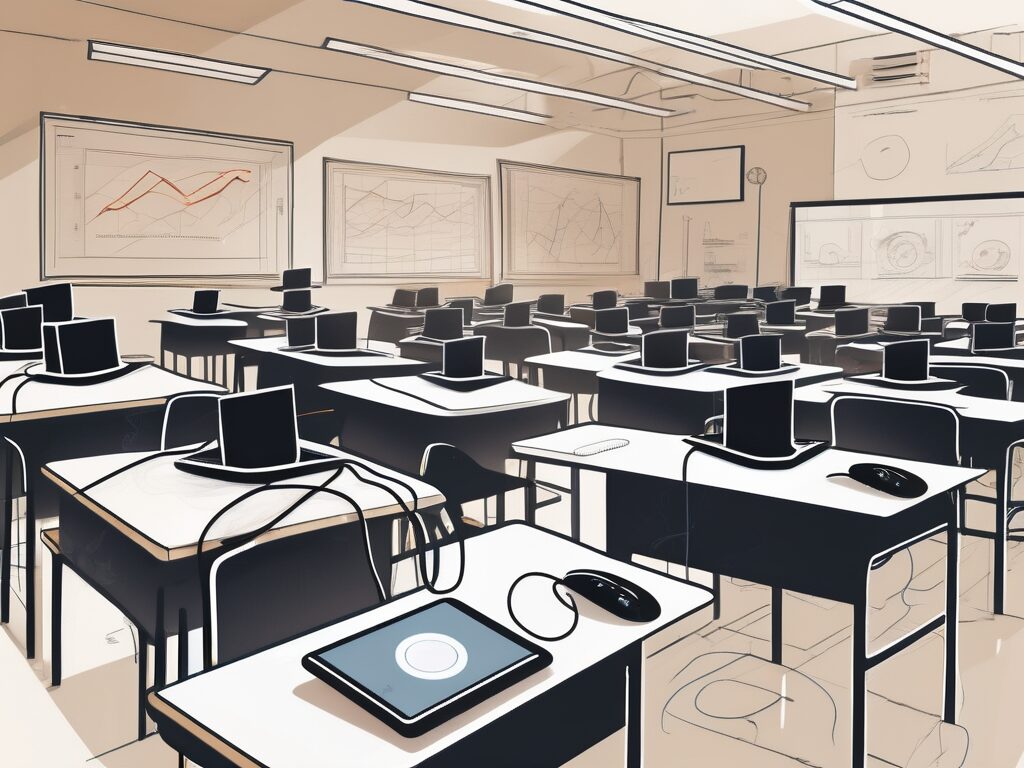The integration of technology in education is a global phenomenon, and Thailand is no exception. With the rise of digital learning tools and the increasing importance of a Master’s in Education, Thai classrooms are undergoing a significant transformation. This article delves into four innovative methods that are reshaping the educational landscape in Thailand.
1. Interactive Whiteboards
Interactive whiteboards (IWBs) are becoming a staple in many Thai classrooms. These high-tech tools are not just glorified chalkboards; they offer a whole new level of interactivity and engagement. With an IWB, teachers can project images, play videos, and even run educational software, turning a static lesson into a dynamic learning experience.
Imagine comparing this to the traditional blackboard and chalk method. It’s like swapping a horse-drawn carriage for a high-speed train. The difference is staggering, and the impact on students’ engagement and understanding is equally impressive.
Moreover, with a Master’s in Education, teachers can maximise the potential of IWBs. They can design interactive lessons that cater to different learning styles, fostering an inclusive learning environment. The combination of advanced technology and pedagogical expertise is a game-changer in Thai education.
2. Learning Management Systems
Learning Management Systems (LMS) are another technological innovation making waves in Thai classrooms. These online platforms provide a centralised space for educational resources, assignments, and communication, streamlining the learning process for both teachers and students.
Think of an LMS as a virtual classroom. Just as you might find textbooks, worksheets, and a notice board in a physical classroom, an LMS houses all these elements in a digital format. It’s like having a 24/7 classroom at your fingertips, accessible from anywhere with an internet connection.
Teachers with a Master’s in Education are particularly adept at leveraging the benefits of an LMS. They can create engaging online content, monitor student progress, and provide timely feedback, enhancing the overall learning experience.
3. Mobile Learning
Mobile learning, or m-learning, is a burgeoning trend in Thai education. With the ubiquity of smartphones and tablets, learning is no longer confined to the four walls of a classroom. Students can access educational content on their devices, making learning a continuous, anytime-anywhere process.
It’s like turning your mobile device into a portable classroom. Whether you’re on the bus, waiting in line, or lounging at home, you can brush up on your lessons, complete assignments, or even participate in online discussions. It’s a flexible and convenient mode of learning that resonates with the digital-native generation.
Teachers with a Master’s in Education are well-equipped to navigate the challenges and opportunities of m-learning. They can design mobile-friendly content, facilitate virtual discussions, and foster a culture of self-directed learning, harnessing the power of mobile technology for educational purposes.
4. Virtual Reality
Virtual Reality (VR) is the latest frontier in educational technology. With VR, students can explore virtual environments, conduct simulated experiments, and experience scenarios that would be impossible in a traditional classroom.
Picture this: instead of reading about the Great Wall of China, you can actually walk on it; instead of learning about marine life from a textbook, you can dive into the ocean and see it for yourself. It’s like stepping into a magic portal that transports you to different places and times, making learning an immersive and exciting adventure.
With a Master’s in Education, teachers can effectively integrate VR into their curriculum. They can curate meaningful VR experiences, guide students in their virtual explorations, and facilitate reflective discussions, transforming the way students learn and perceive the world.
In conclusion, technology is revolutionising Thai classrooms, and a Master’s in Education is the key to unlocking its full potential. Whether it’s interactive whiteboards, learning management systems, mobile learning, or virtual reality, these methods are not just enhancing education; they are redefining it. As we move forward in this digital age, the fusion of technology and education will continue to shape the future of learning in Thailand and beyond.
Elevate Your Teaching Career with iQTS
As technology redefines the educational landscape in Thailand, the need for advanced qualifications like the International Qualified Teacher Status (iQTS) has never been more critical. The IQTS at UWE offers a comprehensive programme that not only enhances your professional development but also significantly increases your chances of meeting stringent international school qualifications. With the iQTS, you can expect a 50% boost in interview callbacks, a 45% increase in promotion rates, and a substantial 30% salary uplift. Join a thriving community of educators, expand your professional network by 300%, and gain invaluable insights into global education systems. Don’t let isolation or a lack of understanding of international curricula hold you back. Embrace the opportunity for career advancement while balancing your ongoing work commitments with our flexible online study options. Make Your Next Step towards a transformative educational journey with the IQTS at UWE.

